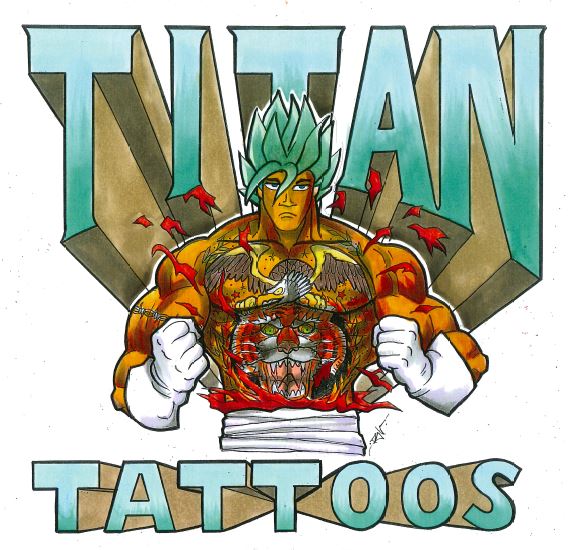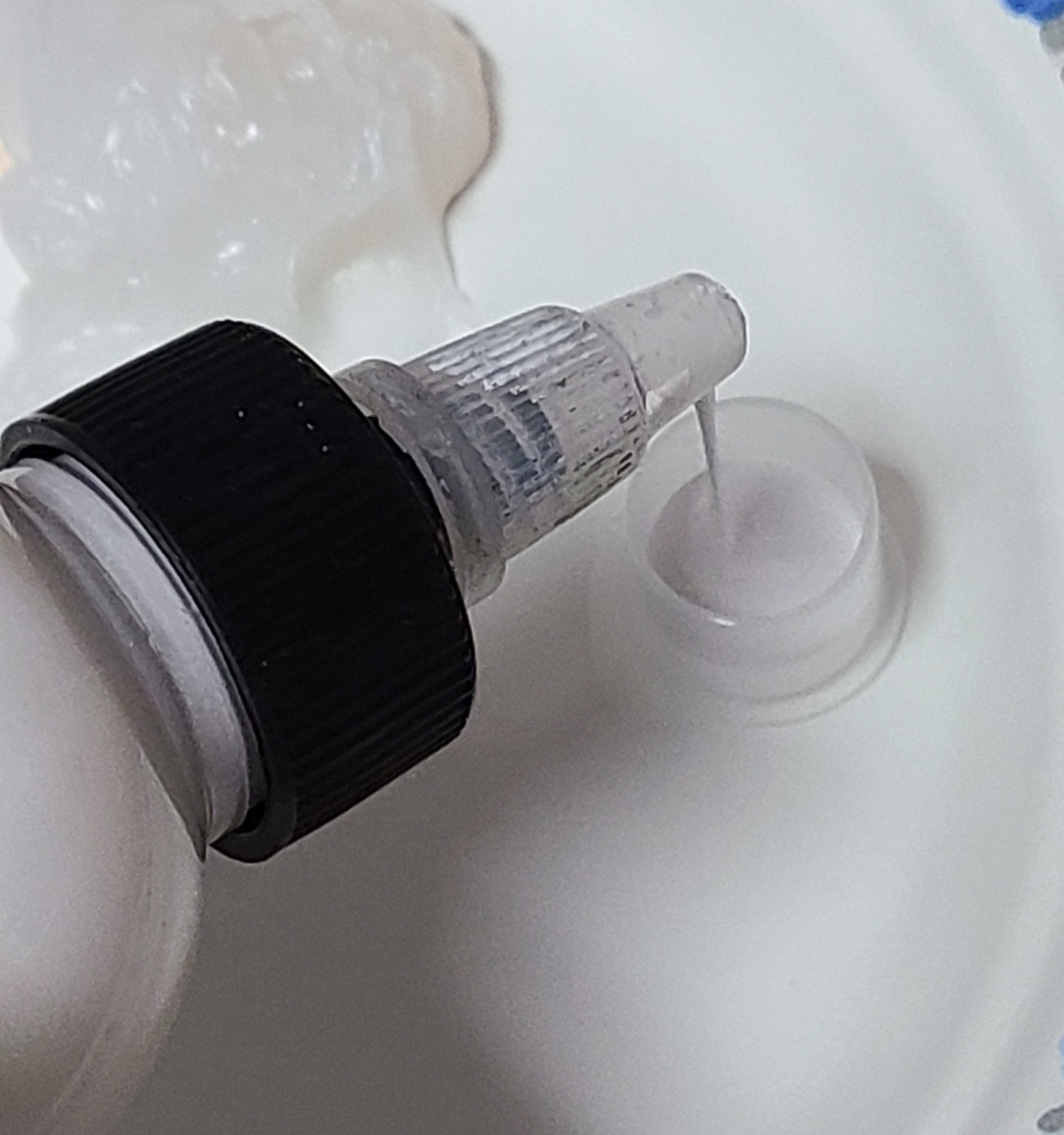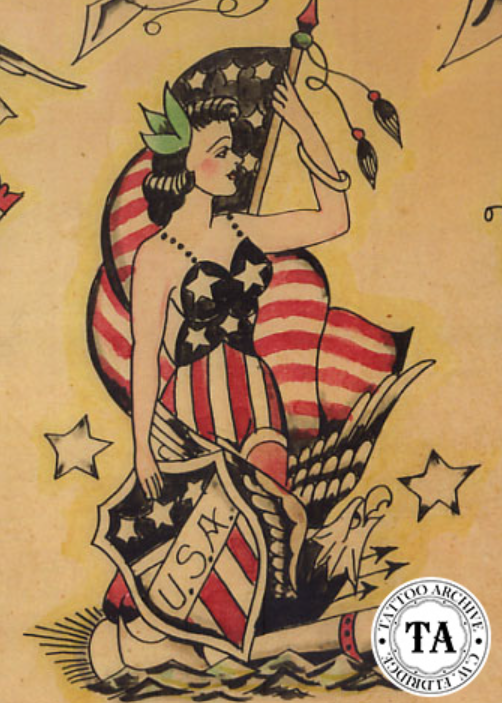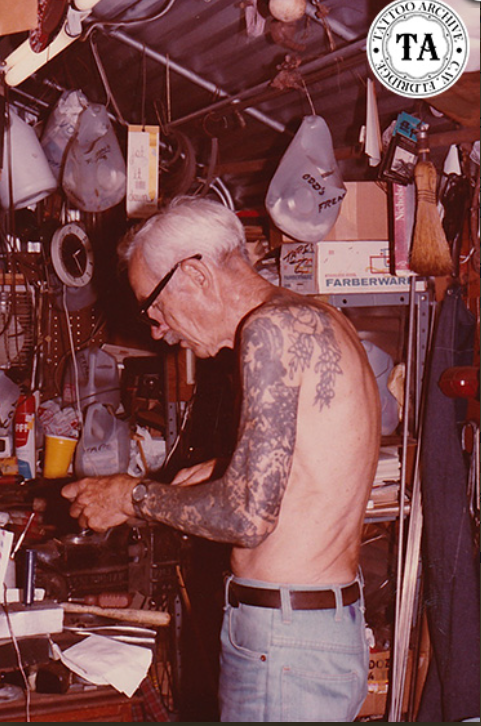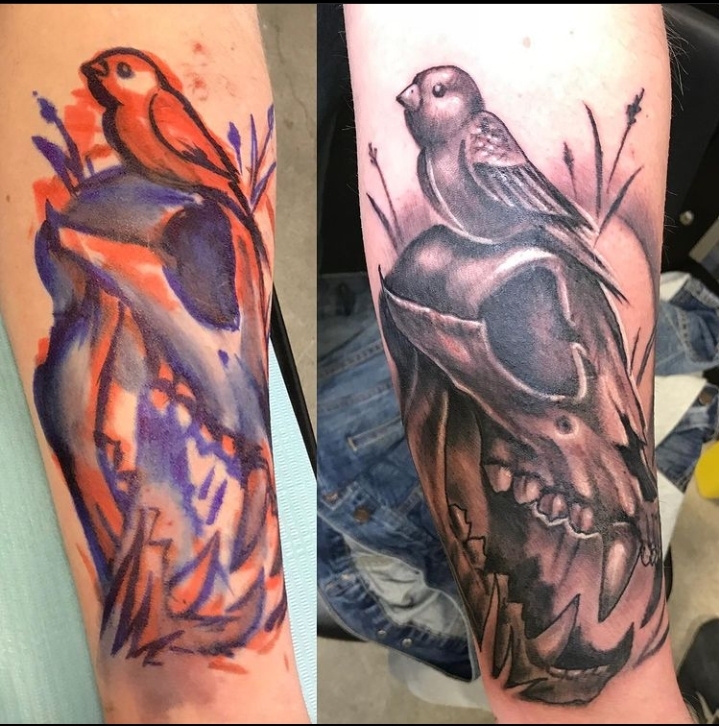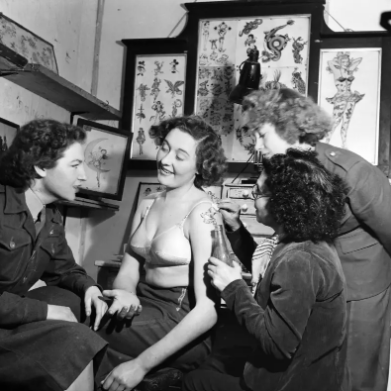The Fight to Get Above Ground: South Korean Tattooing
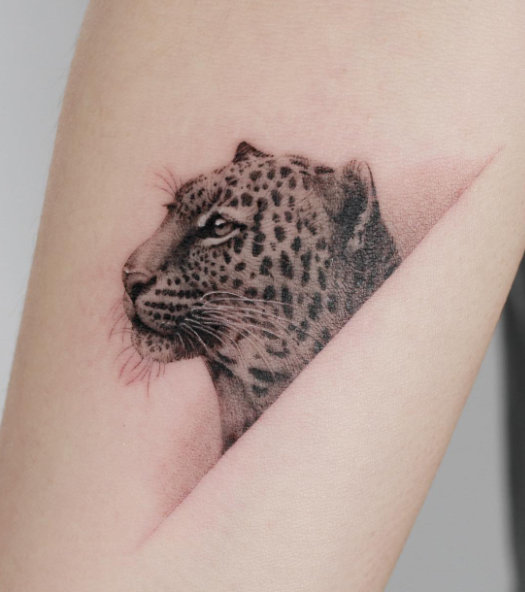
Despite South Korea being home to some of the best tattoo artists in the world they are still fighting for the right to tattoo. The beginning of this story starts over on the island of Japan, just off the tip of South Korea, where tattoos were first criminalized.
In the 1980’s a Japanese gang, Yakuza, was gaining prevalence and their gun smuggling was starting to become a greater concern. In 1992, the Japanese government introduced the Gang Countermeasure Law, in an attempt to get the gang scene under control. However, the business owners and general population feared for their lives if they directly spoke out against the Yakuza. Like many gangs across the world the Yakuza were identified by their tattoos, so to avoid directly targeting the gang and becoming a target themselves the target became all people with tattoos which translated into a law.
South Korea followed suit by criminalizing tattoo artists in 1992, though this law has a different basis, citing medical concerns; it was influenced by the Japanese law and general attitude towards tattoos. An important distinction is that you are allowed to have tattoos but it is illegal to be a tattoo artist. Their stipulation is that tattooing is a medical practice because there are needles involved and that only a doctor would have the medical knowledge to perform a tattoo and provide adequate aftercare. The law is actually that it is illegal to tattoo without a medical license, but like tattoo artist Apro Lee says, why would a doctor bother tattooing.
In March of this year The Constitutional Court in Seoul voted to uphold the ban on tattooing, even though the Japanese law that originally influenced their own law has long since been overturned. Korean tattoo artists have called out the ban saying it’s, “backwards and lacking cultural understanding,” a CBC World article reports. Though tattooing is banned in South Korea there is still a vibrant underground tattoo scene, they estimate around 50,000 artists who are risking everything to keep their art form alive. The tattoo ban is punishable by 50 million won or 50,000 Canadian as well as 2 years – life in prison depending on the circumstances under South Korean public health laws.
There are many concerns that arise with the criminalization of tattooing. Prominent artist Doy, tells ABC news that, “although he has not had any conflict with clients in his 15 years of tattooing, the illegal nature of the work means that artists are vulnerable to blackmail. “When a customer is not satisfied with the result or process of the tattoo, it can’t be resolved by civil negotiation or compensation like in other service business,” he said. “Customers can blackmail artists, threatening to report them.””
Ryu Ho-jeon, a young Korean politician is also an advocate for abolishing the law against tattooing, she raises the point that, “the current laws don’t even stop non-licenced tattoo artists from operating. The laws just force them underground, where they’re not regulated. “Keeping tattooing in the shadows is a public health issue and I’m also worried about labour rights of tattooists,”” in that same ABC article. Ryu is making all kinds of waves in South Korean politics from her modern day opinions on things like tattoos to just being a woman in Koren politics. I won’t dive too much more into her as it strays a little far from my topic but definitely read the ABC article to learn more about her! She has even sported fake tattoos to punctuate her point on the law and has said that if it is legalized she will get a real one.
Attitudes are changing on the ground in South Korea, Ryu tells ABC, “”According to a recent survey, more than half of the respondents agreed to legalization of tattoo,” she said. However, there remains a clear, generational divide.”[Of the survey respondents], 80 per cent of people in their 20s support changing the law, but older age groups tend to be more negative [towards] the tattoo.”” As you saw in the video by Vice, it is mainly the older generation who still feel negative towards tattoos, it just so happens that that is also the main demographic in politics (Which I think is pretty safe to say is a common theme in most countries). To this day South Korea is the only industrialized country criminalizing tattoos, but it seems the tides are slowly changing in the favor of self expression.
Check out some of the South Korean tattoo artists that are hitting the worlds radar here.
Sources:
- https://www.youtube.com/watch?v=akTOw50d96A
- https://www.cbc.ca/news/world/south-korea-court-tattoo-ruling-1.6403665#:~:text=The%20Constitutional%20Court%20in%20Seoul,professionals%20to%20perform%20the%20procedure.
- https://www.abc.net.au/news/2021-10-24/south-koreas-tattoo-taboo-impacts-bts/100348218
- https://www.japantimes.co.jp/news/2022/05/14/asia-pacific/south-korea-tattoo-artists-stigma/
- https://tattoo-friendly.jp/tattoos/the-history-of-tattoos-in-japanutm-sourcehandy/
- https://www.ctvnews.ca/lifestyle/meet-south-korea-s-outlaw-tattoo-artists-1.2194978







































































